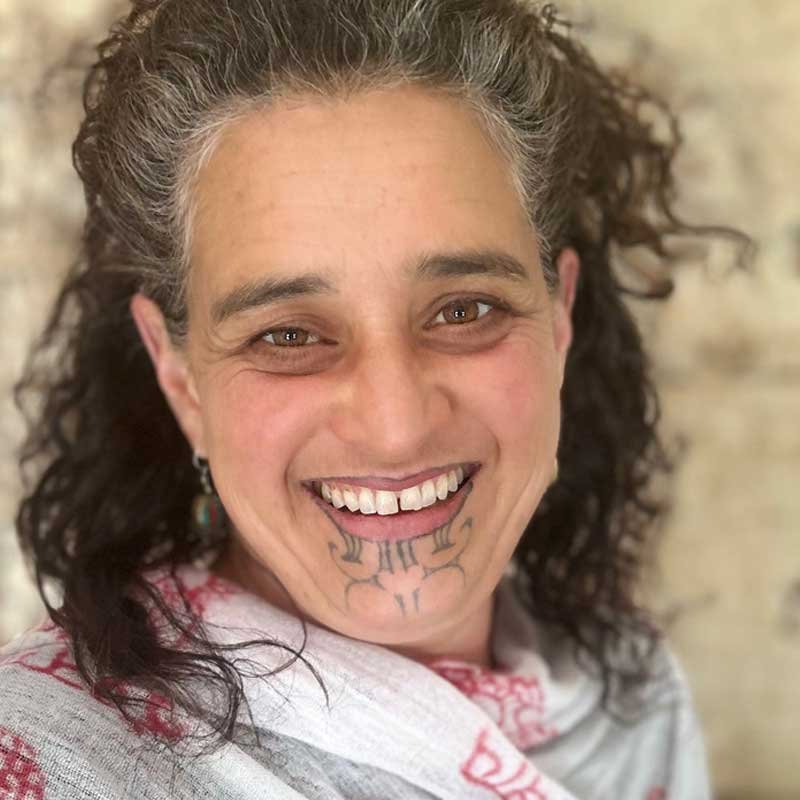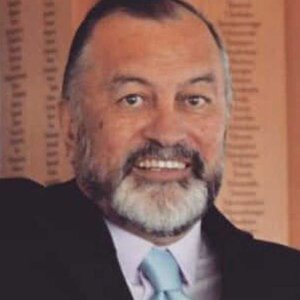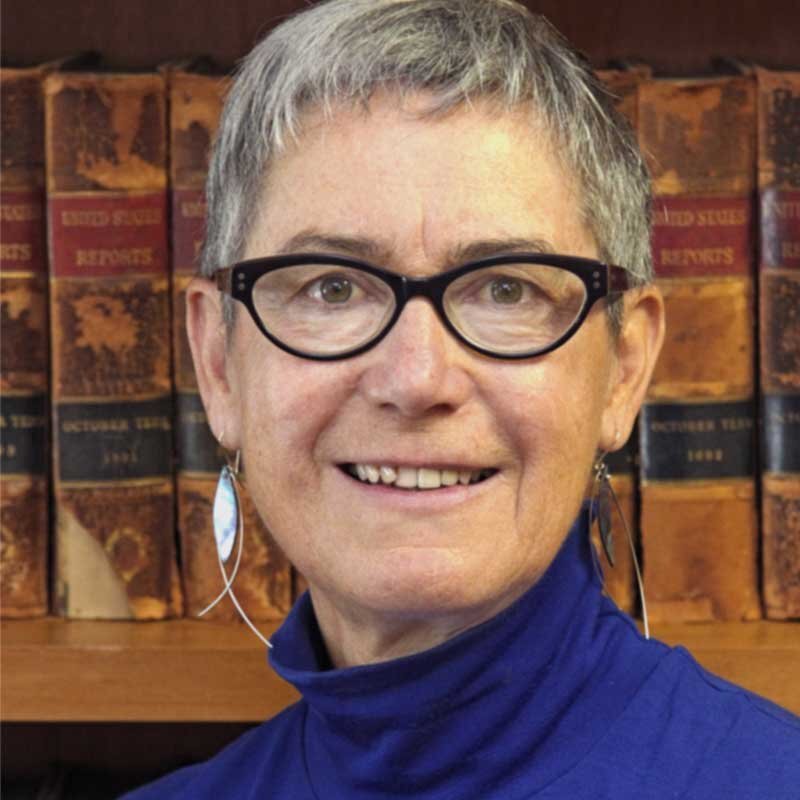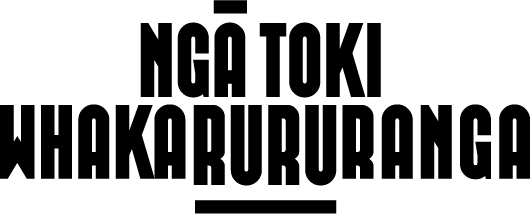Who We Are

Wai 2522 claimants sign off on Ngā Toki Whakarururanga 27 October 2022
We are a by-Māori, for-Māori collective, and our job is to advance and protect Māori interests in the trade space.
We hold ourselves accountable to te iwi Māori, ngā tamariki mokopuna hoki. Our aim is for Māori to thrive in both rangatiratanga and kawanatanga.
We are guided by kaupapa Māori.
We advocate for and empower Māori.
We honour Te Tiriti o Waitangi and provide Te Tiriti assessments.
We aim to educate our communities about the impacts of trade agreements.
We create opportunities to connect and engage with Māori on these issue.
Ngā Toki Whakarururanga has three pillars
Ngā Kaihautū
The governing body, that provide leadership and guidance, under the Co-Convenors Moana Maniapoto and Pita Tipene.
Ngā Pūkenga
The experts and advisers in various fields that are impacted upon by free trade and investment policy and agreements.
Ngā Kaimahi
Administer the entity, led by Te Hiwa.
NGĀ KAIHAUTŪ

Peter-Lucas Kaaka Jones
Kaitaia born and raised, Peter-Lucas Kaaka Jones (Te Aupōuri, Ngāi Takoto, Te Rarawa, and Ngāti Kahu) is the Chief Executive Officer of Te Hiku Media, an iwi organisation owned by the five iwi of the Far North. With an extensive background in broadcasting, media governance, and kaitiakitanga of radio data, Peter-Lucas is at the forefront of an innovative initiative to revitalise te reo Māori utilising AI technology. Te Hiku Media’s development of their own Kaitiakitanga License allows for the responsible use of Māori data from a haukāinga standpoint.

Moana Maniapoto
Moana Maniapoto (Co-convenor) (Te Arawa and Ngāti Tūwharetoa) is a singer, songwriter, documentary maker, journalist and Art Laureate. A long-time advocate for te reo music, she was a co-founder of the Māori Music Industry Coalition and was inducted into the 2016 NZ Music Hall of Fame (APRA-Amcos). Moana is a trustee of Toi Iho, a registered and globally recognised trademark of quality and authenticity of Māori art and artists. The Māori Made Mark is acknowledged as an exceptional cultural initiative by-and-for Māori by the World Intellectual Property Organization (WIPO), in Geneva. Between 2019-2020, Moana was appointed to the South East Asia Advisory Committee by the Taiwan Minister of Culture. Her internationally feted documentary on intellectual property and mātauranga Māori, Guarding the Family Silver, was produced in response to the trade marking of her name by a German company. That experience led to her providing evidence in both the Wai 262 and Wai 2252 claims, where she was a claimant. Moana also travelled Japan to speak to union, peace, activist and student groups about Indigenous concerns around the Trans-Pacific Partnership Agreement (TPPA). Her recent documentary portrait Moana Jackson: Portrait of a Quiet Revolutionary explored the genesis of Māori participation in the United Nations Declaration of the Rights of Indigenous Peoples and documented the lead-up to Matike Mai. Moana is the associate producer, host and journalist for the award-winning current affairs show Te Ao with Moana on Whakaata Māori. She graduated from University of Auckland with an LLB and in 2019 was made a Distinguished Alumni.

Pita Tipene
Ko Mōtatau te marae, ko Ngāti Te Tārawa te hapū, ko Ngāti Hine te iwi. Ka papā te whatititiri, ka hikohiko te uira, ka wahierua ki runga o Mōtatau, e tū ana i te ao, i te pō, ō Hikurangi, ngā kiekie whawhanui a Uenuku. Ko Taumārere te awa, ko te puna i Keteriki, Keteriki, Kete Tangariki, ko Ngāti Hine Pukepukerau.
Pita Tipene (Co-convenor) was born and raised on a dairy farm in Mōtatau in the inland Bay of Islands. He and his wife Sara and their whānau, including six mokopuna, now live in Kawakawa. He holds a number of governance roles within his iwi of Ngāti Hine as well as local, regional and national roles. For instance, he is chair of the Mōtatau Marae and chair of the Ngāti Hine Forestry Trust. Pita sits on Te Kahu o Taonui (Taitokerau Iwi Chairs Forum) representing Te Rūnanga o Ngāti Hine. Consequently, he also represents Te Rūnanga o Ngāti Hine at the National Iwi Chairs Forum. Pita is also the chair of the Waitangi National Trust having been a trustee since 2016. One of his other national roles is as chair of the Mānuka Charitable Trust that has the responsibility of maintaining and enhancing the intellectual property of mānuka in the global market. Pita was a claimant in the Waitangi Tribunal claim on the TPPA (Wai 2522). He has a passion for upholding He Whakaputanga and Te Tiriti o Waitangi and, like many, looks to kōrero by Kawiti to motivate him in his work as part of Ngā Toki Whakarururanga.
“Waiho kia kakati te namu i te whārangi o te pukapuka, ko rēira, ka tahuri atu ai!”

Donna Kerridge
Donna Kerridge (Ngāti Tahinga and Ngāti Mahuta) is the founder and director of Ora New Zealand. She serves as member of the Accident Compensation Corporation’s Rongoā Advisory Panel and is the principal advisor and contracted negotiator for Te Kāhui Rongoā, the national collective of rongoā Māori healers, with the Ministry of Health. Donna also provides advisory services to a number of universities, research, professional and private training organisations and has served on a number of government expert advisory groups representing the practice of rongoā. Donna looks forward to the day when these functions are no longer required because mātauranga Māori will be so imbedded in all that we do here in Aotearoa New Zealand. Then she can return to the quiet life of making rongoā, ministering to whānau and running the odd rongoā training programme to support the next generation of healers – her retirement plan!

Dr George Laking
Dr George Laking (Te Whakatōhea) is a medical oncologist at Te Pūriri o Te Ora Northern Regional Cancer and Blood Service where he is helping to develop a community-based model of cancer care. His other roles include Director of Te Aka Mātauranga Matepukupu, the Centre for Cancer Research at the University of Auckland, and Medical Director of the Cancer Society of New Zealand. His previous roles included chair of Te ORA (the Māori Medical Practitioners’ Association), Aotearoa New Zealand President in the Royal Australasian College of Physicians, and member of PHARMAC’s Pharmacology and Therapeutics Advisory Committee. George is an executive board member of OraTaiao, the New Zealand Climate and Health Council. During the TPPA negotiations he played a key role in Doctors for Healthy Trade. His PhD thesis was written on the economic meaning of diagnosis.

India Logan-Riley
India Logan-Riley (Ngāti Kahungunu ki Ngāti Hawea, Rongomaiwahine and Rangitāne) is the Climate Justice Organiser at ActionStation and a community researcher for the research project, Generation Kāinga. They bring a background in Māori heritage spaces and lived experience of climate injustice to their mahi in a broad range of areas from United Nations climate negotiations to harakeke roots work on #LandBack kaupapa with rangatahi Māori and Pasifika. India dreams of resilient communities where everyone is safe and joyful, and is excited for Ngā Toki Whakarururanga to be a part of bringing that vision into reality.

Potaua Biasiny-Tule
Potaua Biasiny-Tule (Te Arawa, Ngāi Tūhoe, Te Whakatōhea and Niue) is a passionate Māori IT advocate who has worked in the digital industry for over 20 years. Along with his wife Nikolasa, they have supported the next generation of digital Māori leaders with the establishment of Digital Natives Academy (DNA) in Rotorua, building a connected Māori ecosystem across Aotearoa New Zealand and the world. Potaua has a political science degree from Canterbury University and a Post-Graduate Diploma in Māori Development from Waikato University where he lectured in the School of Business and Management. Potaua served on the Ministerial Advisory Board for Digital Inclusion and Digital Economy in 2018 under Hon. Minister Claire Curran. He is currently a board member of InternetNZ, chairing its Te Komiti Whakauru Māori sub-committee, and between 2013-2022 sat on the Rotorua Lakes Council as a Te Arawa representative. He is also a Trustee for Te Takinga Marae.

Dr Jessica Hutchings
Jessica Hutchings (Ngāi Tahu, Ngāti Huirapa and Gujarati) is nationally and internationally recognised as a leader in Indigenous food systems and Māori food and soil sovereignty. Dr Hutchings also holds a range of governance and leadership roles in the science sector, including on the Science Board at the Ministry of Business, Innovation and Employment, the Resilience to Nature’s Challenges National Science Challenge and is a founding Trustee of the Papawhakaritorito Charitable Trust that works to uplift Māori kai and soil sovereignty and hua parakore (Māori organics) through research, development and community practice. She lives on 12 acres and is a hua parakore verified whānau food grower. Jessica is also a widely published author, including recent books, Te Mahi Oneone Hua Parakore: A Māori Soil Sovereignty and Wellbeing Handbook (Freerange Press 2020), and Te Mahi Māra Hua Parakore: A Māori Food Sovereignty Handbook (Te Tākupu, 2015). Dr Hutchings has been working at the crossroads of Indigenous knowledge, whānau and environmental wellbeing for the last three decades and is passionate about Indigenous social justice and self-determination.

Michelle Paki
Michelle Paki (Ngāti Porou and Rongowhakaata) is a passionate advocate for Māori business and Māori economic development. Over the years, Michelle has supported many Māori businesses in her role as Manager of the Te Puni Kōkiri Māori Business Facilitation Service, and later through her role as Principal Regional Advisor for the Regional Economic Development unit at the Ministry of Business, Innovation and Employment. In 2020, just before lockdown, Michelle created the Buy Māori Made Facebook group, which is a growing platform supporting Māori businesses to promote their products and services, across a range of sectors. The group has grown to a community of 170,000 members, with many Māori businesses making this their ‘go-to’ platform for showcasing their products. Michelle believes that investment into Māori small- and medium-sized enterprises (SMEs) will make a huge impact on accelerating the growth of the Māori economy and an economy of mana. Michelle is acutely aware of the challenges that Māori businesses face, but also the opportunities this can bring for whānau. Through her work she has seen how Māori SMEs contribute to hauora and transmission of mātauranga Māori, te reo Māori and so much more. This drives her to continue to push the boundaries and challenge the status quo to change the way we think about investing in Māori SMEs. Michelle hails from Te Tairāwhiti; her Ngāti Porou and Rongowhakaata roots keeping her grounded and humble in her mahi. She is the married with three tamariki, and currently lives in Kirikiriroa Hamilton. She holds a B.Soc.Sci ( Hons), MMPD (University of Waikato), and Grad Dip Economic Development (AUT).

Julie Paama-Pengelly
Julie Paama-Pengelly (Ngāi Tuwhiwhia, Ngāi Tauaiti, Ngāti Tapu and Ngāi te Rangi) is an artist and champion of Māori arts who enjoys working on her own art with a vision for the big picture stuff with respect to Māori development. Over thirty years ago, she was the first wāhine in the tā moko revival space. Julie actively advocates, educates and practices across a range of tools from her tā moko studio, Art + Body, and exhibits her works both nationally and overseas. Julie chairs Te Tuhi Mareikura Trust which leads Tauranga Moana Māori arts development through a number of initiatives, which includes the successful annual Toi Kiri: World International Indigenous Tatau Festival 2022. Julie has a MMVA (Hons) and MPhil (Dev Studies).
NGĀ PŪKENGA

Maui Solomon
Maui Solomon (Moriori and Ngāi Tahu) is a lawyer with 35 years legal experience specialising in Treaty law, commercial law, resource management, cultural and intellectual property and Treaty/Indigenous peoples’ rights. He has been a key legal and political advocate for the recognition of the customary rights and identity of his Moriori people of Rekohu (Chatham Islands) and was CEO for Hokotehi Moriori Trust for 12 years. Maui was senior counsel for three tribes from Te Taitokerau in the Wai 262 flora and fauna claim, and is a former member of the Treaty of Waitangi Fisheries Commission. He is a former President of the International Society of Ethnobiologist and current chair of the Aotearoa New Zealand Peace and Conflicts Studies Trust. He is currently involved in regenerative farming and developing a native plants nursery on his family land on Rekohu. He is chair of the post-settlement governance entity (PSGE) Moriori Imi Settlement Trust and lives on Rekohu with his wife Susan.

Annette Sykes
Annette Sykes (Ngāti Pikiao, Ngāti Mākino and Te Arawa waka) has been a long-standing advocate of Māori land rights and appears regularly before the New Zealand Courts and in the special jurisdiction of the Waitangi Tribunal, including as claimants’ counsel throughout the Wai 2522 TPPA claim. Annette is currently a Principal of her own law firm Annette Sykes & Co based in Rotorua which seeks to re-establish the operation of Māori systems of law and custom, tikanga Māori, as the first law of this country. Outside of the law practice, Annette is currently a member of Te Tai Timu Tai Pari Technical Roopu, who provide technical expertise and knowledge to Te Arawhiti on the transition of takutai moana rights under the resource management reforms, a member of Te Tai Kaha technical roopu who provide expert advice to the Ministry for the Environment on Te Mana o Te Wai Policy in the Three Waters legislation, and an advisory member of Te Ara Takatū roopu, a group of survivors who advise the Royal Commission on Inquiry into Abuse in State Care. She is also a representative of the Māori Appointers to the Crown Forest Rental Trust (CFRT) which oversees the management of administrative process arising from the operation of the Crown Forest Assets Act regime.

Aroha Te Pareake Mead
Aroha Te Pareake Mead (Ngāti Awa, Ngāti Porou and Tūhourangi) is an independent Māori researcher specialising in mātauranga Māori/Indigenous knowledge, biocultural heritage, Indigenous cultural and intellectual property policy and law and biotechnology and conservation. Aroha has worked across sectors, including public policy, academia, journalism, iwi and Māori organisations, as well as national and international NGOs. Her current roles include being a member of Te Rūnanga on Ngāti Awa, as well as member of the Māori Advisory Trademarks Committee and the Repatriation Advisory Panel of Te Papa Tongarewa the National Museum of NZ. Aroha chairs Te Rōpu Rangaputanga (Mānaki Whenua) and the Strategic Oversight Group for the Review of NZ’s Wildlife Act. Previous roles include the International Union for Conservation of Nature Governing Council (16 years), Global Chair, IUCN Commission on Environment, Economic and Social Policy (8 years), Fonterra Sustainability Advisory Panel, Greenpeace NZ Board member and Foreign Policy Convenor for Māori Congress.

Dr Carwyn Jones
Dr Carwyn Jones (Ngāti Kahungunu) is Pūkenga Matua (Lead Academic) in the Ahunga Tikanga (Māori Laws and Philosophy) programme at Te Wānanga o Raukawa. Prior to joining the Wānanga, Carwyn was an Associate Professor in the Faculty of Law at Victoria University of Wellington. He has worked in various roles at the Māori Land Court, Waitangi Tribunal, and Office of Treaty Settlements. He also served as a negotiator for the iwi and hapū of te rohe o Te Wairoa in the settlement of their historical claims against the Crown. Carwyn’s primary research interests relate to the Te Tiriti o Waitangi, the rights of Indigenous peoples, and Indigenous legal traditions, and he has published numerous articles on these topics. He is the author of New Treaty, New Tradition – Reconciling New Zealand and Māori Law (UBC Press and VUP, 2016) and co-editor of Indigenous Peoples and the State: International Perspectives on the Treaty of Waitangi (Routledge, 2018). He is also Co-Editor of the Māori Law Review, and of AlterNative – an international journal of Indigenous peoples.

Emeritus Professor Jane Kelsey
Emeritus Professor Jane Kelsey (Pākehā) has worked as an academic and activist on Te Tiriti o Waitangi and critic of neoliberal policy and globalisation for more than 40 years. She is an internationally recognised expert on international trade and investment agreements, especially on services, investment and digital trade, highlighting their potential to constrain domestic policy and regulation, including honouring of Te Tiriti o Waitangi. Jane has written many academic articles and technical reports, addressed international conferences, briefed and advised governments and affected sectors, and run training workshops on related matters for government officials, legislators, trade unions, and civil society. She has given expert evidence for claimants in numerous Waitangi Tribunal claims and was the Wai 2522 claimants’ expert in the Tribunal claim on the TPPA. Jane has law degrees from Victoria University of Wellington, Oxford University, Cambridge University and a PhD from the University of Auckland, and is a Professor Emeritus of the Faculty of Law at the University of Auckland.

Dr Veronica Tawhai
Dr Veronica Tawhai (Ngāti Porou and Ngāti Uepohatu) is Associate Professor and Pūkenga Tiriti (Tiriti Cpability Lead) for the Office of the Deputy Vice-Chancellor Māori at Massey University and a Tiriti o Waitangi educator for Te Ata Kura Educators nationally. Previous to her Pūkenga Tiriti role, she lectured for 14 years in policy and politics for Te Putahi a Toi School of Māori Studies at Massey University, is a founding member of Te Ata Kura (Society for Conscientisation), a life member of Te Mana Ākonga (the National Māori Tertiary Students Association), and holds other roles advancing critical education at national and community levels. Between 2012-2017 she coordinated the Matike Mai Aotearoa Rangatahi Youth for Constitutional Transformation education project for Moana Jackson and Margaret Mutu. She is a past recipient of the Fulbright-Ngā Pae o te Maramatanga scholar award which assisted with her PhD research examining best evidence-based practices in teaching and learning about Indigeneity and the implications for citizenship education in settler colonial societies. She has also held research fellowships at the Centre for World Indigenous Studies based out of The Evergreen State College (Olympia, WA, USA) and the National Centre for Indigenous Studies, Australian National University (Canberra, Australia).

Dr Karaitiana Taiuru
Dr Karaitiana Taiuru (Ngāi Tahu, Ngāti Rārua, Ngāti Pāhauwera, Ngāti Hikairo, Tūwharetoa, Ngāti Hauiti, Ngāti Whitikaupeka and Pākehā) is an expert in digital and Māori data (biological and digital) sovereignty, and how tikanga and mātauranga Māori are applied in this environment. He is currently an independent consultant and honorary academic at the School of Engineering at the University of Auckland working with tikanga and robotics and data. Karaitiana is a member of the Māori Trade Marks Advisory Committee and was one of the expert witnesses in the Waitangi Tribunal’s stage two report for WAI 2522, the Trans-Pacific Partnership Agreement inquiry.

Dr Maria Bargh
Dr Maria Bargh (Te Arawa and Ngāti Awa) is a Professor of Politics and Māori Studies at Te Herenga Waka, Victoria University of Wellington. She has researched and published widely in the area of politics (Māori, local, national and international) and Māori resource management and environmental matters. She has analysed Māori rights and interests in international trade and foreign policy particularly in relation to questions of sovereignty, environmental protections, climate change and hidden economies. Three of her books have been highlighted on the Te Takarangi, Royal Society/Ngā Pae list of 150 important books by Māori: Resistance: An Indigenous Response to Neoliberalism (2007), Māori and Parliament (2010) and sole-authored monograph A Hidden Economy: Māori in the privatised military industry (2015). She has served on a number of governance boards and is Minerals Advisor for her hapū Ngāti Kea/Ngāti Tuara at Horohoro, Rotorua.
NGĀ KAIMAHI

Tania Pouwhare
Tania Pouwhare (Ngāi Tūhoe) has been a pūkenga for Ngā Toki Whakarururanga since its establishment. From January 2024, Tania will take over from Ben Morgan in the role of Te Hiwa at Ngā Toki Whakarururanga on an interim basis. Until recently, Tania has led the Auckland Council’s Community and Social Innovation department to secure just, inclusive, circular and regenerative economic development that upholds and enhances the mana of everyday people, and the natural world. Her work spanned social procurement, Māori and Pasifika entrepreneurship, active labour market policies, the Green New Deal and the politics of the urban diaspora in democratising wealth and economic power. A former head of policy and campaigns at a UK women’s rights organisation and policy analyst with NZ Women’s Refuge, Tania is a senior fellow at the Atlantic Fellowship for Social Equity, an honorary fellow of Engineering NZ, co-chair of the Māori Economic Development Advisory Board and member of Te Kāhu Mātai WorkSafe Partners Council.

